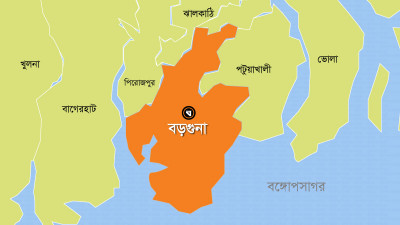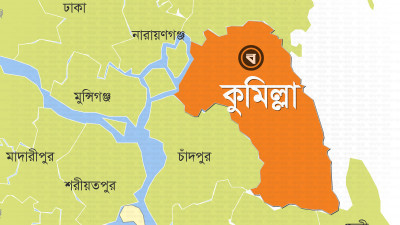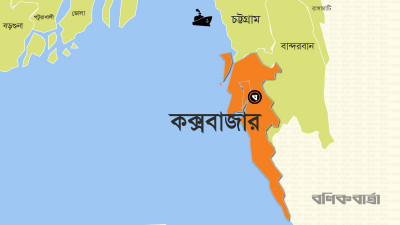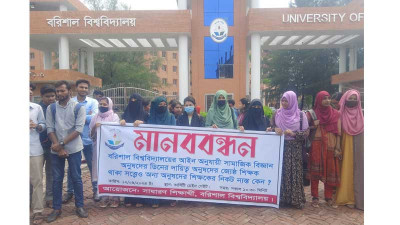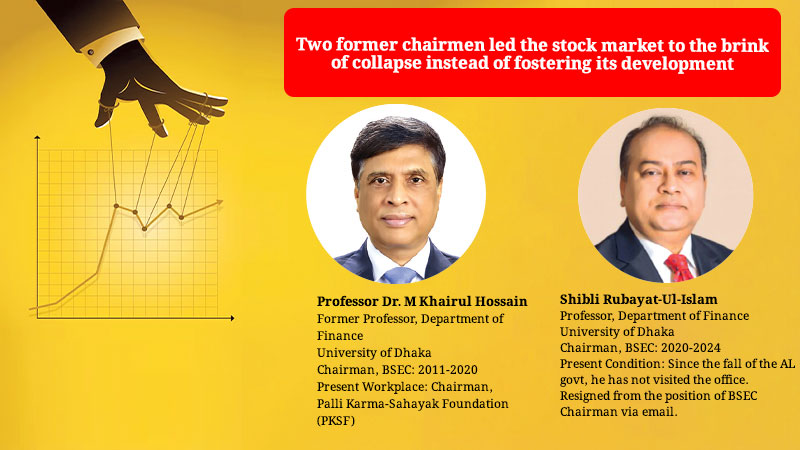 Photo: Bonik Barta
Photo: Bonik Barta After the Awami League government assumed power in
2009, there was a significant surge in the country's stock market within a year
and a half. However, a sudden crash occurred in January 2011 following this
abnormal surge. The loss led to incidents where investors even committed
suicide. Subsequently, the government formed an investigation committee and
took initiatives to reform and restructure the Bangladesh Securities and
Exchange Commission (BSEC). In this context, Dr. M Khairul Hossain, a professor
of finance at Dhaka University, served as the commission's Chairman for ten
years. He was succeeded in 2020 by Professor Shibli Rubayat-Ul-Islam from the
same university's Banking and Insurance Department. However, it is believed
that due to various controversial activities and nepotism associated with these
two chairmen, the country's stock market has further edged closer to the brink
of disaster.
Market insiders have reported that over the past 15
years, BDT 1 trillion has been embezzled from the country's stock market
through fraud, manipulation, placement shares, and deceit. Many companies
raised funds from the market through Initial Public Offerings (IPOs) but failed
to improve their business or financial conditions. Instead, there have been
instances where IPO funds were used for different purposes. Additionally, some
companies artificially inflated their share prices after going public to siphon
off more money from the market. Large sums of money were also embezzled in the
placement process, with influential individuals receiving placement shares as
gifts without payment, which were then sold at inflated prices after the
companies were listed. BDT 250 billion has been misappropriated from the stock
market through these IPO-related activities.
There are allegations that Beximco Group's various
companies embezzled around BDT 200 billion through mergers, Sukuk and bond
issues, and placement shares. Additionally, over the past 15 years, many beneficiaries
among stock traders and company founders have siphoned off large sums of money
from the market through manipulation, with insiders estimating the amount to be
around BDT 550 billion.
After the 2011 stock market crash, the investigation
committee led by Ibrahim Khaled highlighted issues such as placement trading,
irregularities in the IPO process, suspicious transactions under omnibus
accounts, and the roles of influential businessmen, brokers, and market
players. The report included companies whose share prices surged abnormally in
2009 and 2010. For instance, in 2009, the share price of Beach Hatchery
increased by 829 percent, Purabi General Insurance by 567 percent, Aftab
Automobiles by 478 percent, Padma Cement by 466 percent, and Rahim Textile by
342 percent. Similarly, in 2010, the share price of City Vegetables rose by
4,158 percent, Safko Spinning by 792 percent, Tallu Spinning by 444 percent,
Rahima Foods by 320 percent, and BD Welding by 299 percent.
In Ibrahim Khaled's investigation report, it was
noted that the government had ignored the findings of the 1996 stock market
crash investigation report, and several warnings and recommendations were made.
The report mentioned individuals such as Imtiaz Hossain, Khorshed Alam, Salman
F Rahman, Enayetur Rahim, Rokibur Rahman, and Shakil Rizvi as being under
suspicion in the 1996 investigation. It was stated that during the current
investigation, significant opinions and some information emerged about Salman F
Rahman and Rokibur Rahman. Many believed both were actively influencing the
SEC. Salman F Rahman and Rokibur Rahman were believed to have strongly lobbied
for the appointment of the SEC chairman and the reappointment of member Mansur
Alam. Salman F Rahman himself reportedly pressured the Bangladesh Bank governor
regarding the opaque BD Thai Aluminum case and was involved in other
questionable cases like GMG and Unique Hotel. Their undue influence on the SEC
was seen as damaging to the government's image among the public. Despite these
warnings and recommendations, the government and regulatory bodies did not take
significant action, and the influence of these individuals persisted in the
stock market after 2011.
Following the crash, on May 15, 2011, the government
appointed Professor Dr. M Khairul Hossain as the Chairman of the BSEC as part
of the stock market reform efforts. Along with him, the government appointed
Professor Helal Uddin Nizami from Chittagong University's Accounting
Department, former central bank official Md Amzad Hossain, top corporate
executive Arif Khan, and former district judge Md Abdus Salam Sikder as
commissioners.
Dr. Khairul Hossain served the longest tenure as
Chairman of the BSEC. The government even appointed him for a third term in
violation of the law. He was entrusted with the significant responsibility of
reforming the country's stock market. Although many laws, rules, and
regulations were established during his tenure, there were considerable
deficiencies in their implementation. Notably, during Khairul's commission,
there were allegations of bringing weak and substandard companies into the
market through IPOs. During this time, a major manipulation network involving
influential entrepreneurs, issue managers, auditors, and a certain class of
investors emerged. In many cases, officials of the regulatory body themselves
played a role as accomplices by exploiting legal loopholes or providing
concessions.
Over the past fifteen years, 149 companies have
raised more than BDT 110 billion from the stock market through IPOs, most of
which occurred during Khairul's tenure. Many of these companies are now
financially weak or in a deteriorated state, with several having ceased
production. Negative reports from the stock exchange regarding IPOs were often
ignored. Despite allegations of irregularities in the listing of Coppertech
Industries, the Khairul Commission took no action. Even though the late Finance
Minister Abul Maal Abdul Muhith advised against listing Apollo Steel, the then
Chairman of the BSEC, Khairul Hossain, disregarded the advice. The Khairul
Commission also approved the IPO of Ring Shine Textile, a company involved in a
placement scandal.
Former Managing Director of the Dhaka Stock Exchange
(DSE), K A M Mazedur Rahman, told Bonik Barta, "The primary capital in the
stock market is trust. Trust can only be maintained if there is transparency,
good governance, and fair play. If investors face losses the day after
investing, why would anyone come? The stock market should be allowed to operate
on its own. Though not responsible for all aspects, regulatory bodies often
want to exercise oversight over the stock exchange. Here, the share prices of
poor companies are arbitrarily adjusted with no remedy. In many cases, the DSE
is powerless because control remains with the BSEC. If a minor fine is imposed
a year after manipulation, it's not effective. There has been a coercive
collection of BDT 30 billion through Sukuk in violation of laws. The failure to
make the stock market dynamic falls on the boards of the DSE and the BSEC. To
overcome the current situation, strong management must be introduced at both
the regulatory body and the stock exchange."
During Khairul's commission, the crucial mutual fund
sector in the country's stock market was taken over by vested interests. Specifically,
allegations of embezzlement of unit holders' funds were made against the top
two institutions in the closed-end mutual fund sector, Race Management PCL and
LR Global Bangladesh Asset Management Company. However, no action was taken by
the BSEC. The BSEC favored Race's leaders, Chowdhury Nafeez Sarafat and Hasan
Taher Imam, and LR Global's CEO, Riaz Islam. Notably, the Khairul Commission
extended the duration of all closed-end mutual funds by an additional ten
years. However, one such fund, managed by AIMCS Asset Management, had already
gone into liquidation following a court ruling. Market insiders believe this
extension was intended to benefit Race. As a result of these changes, investor
confidence in the sector plummeted.
Dr. M Khairul Hossain's appointment for a third term
as BSEC Chairman further fueled controversy. During this period, investors,
frustrated with him, frequently staged protests, an unprecedented action
against a BSEC chairman. Additionally, the most criticized floor price system
in the stock market was implemented during Khairul's tenure, which tarnished
the market's reputation internationally. Furthermore, the rise of placement
business linked to the former National Board of Revenue (NBR) official Matiur
Rahman occurred under Khairul's commission. Matiur exploited the financial
weaknesses and tax evasion of IPO-listed companies to acquire placement shares.
Beneficiaries of placement trading included former police IG Benazir Ahmed,
officials from the Anti-Corruption Commission (ACC), and others.
Former BSEC Chairman Faruq Ahmed Siddiqi told Bonik
Barta, "The stock market has been in poor shape over the past 15 years.
There has been a lack of good governance, quality companies have not been
listed, share prices have been manipulated, and the imposition of floor prices
has effectively halted trading in good companies. Manipulation continues with
poor shares. Despite numerous laws, their implementation has often been
lacking. As a result, public trust in the market has eroded. The regulatory
body has engaged in various irregularities, provided benefits to many, and
failed to take proper action against manipulation. Currently, almost all
economic indicators are in bad shape, and recent events have dealt a further
blow. It is uncertain how long it will take to recover. We should not expect
the economy and stock market to improve overnight; it will take some time. The
recent upward trend in the stock market over the past three days will reveal
over time how much is driven by genuine factors and how much by emotions."
Before the end of his first term, Commissioner Arif
Khan resigned from the Khairul Commission, citing personal reasons. However,
some believe he resigned to distance himself from the commission's
controversies. Market insiders also argue that Arif Khan cannot escape
responsibility for the weak and controversial IPO approvals during Khairul's
tenure, as he was the commissioner in charge of the Capital Issues Division,
which oversees IPO approvals. During Khairul's term, two other commissioners
served alongside him: the late Professor Dr. Swapan Kumar Bala and Khonoker
Kamaluzzaman.
After concluding his term as BSEC Chairman, Dr. M
Khairul Hossain returned to Dhaka University. Later, in September of 2023, the
government appointed him as the Chairman of the Palli Karma-Sahayak Foundation
(PKSF). Attempts to reach him for a comment on this matter went unanswered.
Just before the end of Khairul's commission, the
country's economy and stock market were severely impacted by the COVID-19
pandemic. A floor price was imposed to curb the fall in share prices, and
trading was halted for 66 days. On May 17, 2020, Professor Shibli
Rubayat-Ul-Islam took over as Chairman of the BSEC. Joining him as
commissioners were Professor Dr. Shaikh Shamsuddin Ahmed from the Finance
Department of Dhaka University, Professor Dr. Mizanur Rahman from the
Accounting and Information Systems Department, and former Secretary Md. Abdul
Halim. Later, Professor Rumana Islam from the Law Department of Dhaka University
joined the Shibli Commission as a member.
At the outset of Shibli's commission, several
initiatives were taken to resume trading in the stock market, which drew
attention from market participants. Notably, significant fines were imposed on
some major manipulators. Many believed that these actions would help the market
recover from the troubling experiences of Khairul's commission. However,
investors soon became disillusioned.
In the post-COVID period, there have been
allegations that the Shibli Commission indirectly and directly favored several
market manipulators in an effort to boost the market indices. Over the past few
years, a prominent figure in the stock market, Sub-Registrar Mohammad Abul
Khair Hiru, and his associates have reportedly amassed thousands of crore taka
through manipulation. It is rumored that Hiru began engaging in market
manipulation after meeting with Professor Shibli at the commission's office.
Hiru was introduced to Professor Shibli by another professor from Dhaka
University's Marketing Department. As a government official, Hiru was
responsible for managing the portfolios of many influential individuals.
Although Hiru and his associates have been fined in
several manipulation cases, they have reportedly withdrawn much more money from
the market than the fines imposed. In other instances, while penalties were
ordered against individual persons, Hiru was not fined individually. Instead,
fines were imposed collectively. There are allegations that this approach was
taken to prevent any issues with Hiru's government job. Market participants
have also criticized the close relationship between Hiru and the top officials
of the BSEC.
Hiru involved cricketer Shakib Al Hasan as a partner
in his manipulation schemes. The BSEC granted a brokerage license to Hiru and
Shakib's company, Monarch Holdings. Another controversial investor, Javed A
Moteen, who is implicated in fraud, was associated with this company. An
Organized Crime and Corruption Reporting Project (OCCRP) report reveals that
money from a bank account linked to a million-dollar fraud was transferred to
Shibli Rubayat. The report also mentions that Javed Moteen's name was
associated with these transactions and notes that he is a friend of Shibli
Rubayat.
In addition to Moteen and Hiru, a class of
significant investors in the stock market has, due to Shibli's commission's
leniency, managed to acquire large sums of money by investing in various
companies over time. In 2021, the five companies with the highest share price
increases included Sonali Paper at 321 percent, Fortune Shoes at 317 percent,
Emerald Oil at 284 percent, Salvo Chemical at 253 percent, and Genex Infosys at
231 percent. In 2022, the shares with the most significant price increases
included Orion Infusions at 507 percent, Imam Button Industries at 400 percent,
Sea Pearl Beach Resorts and Spa at 317 percent, Meghna Condensed Milk
Industries at 183 percent, and Jute Spinners at 174 percent. In 2023, the
shares with the highest price increases were Khan Brothers PP Woven Industries
at 686 percent, Legacy Footwear at 338 percent, Khulna Printing and Packaging
at 223 percent, RN Spinning Mills at 161 percent, and Fine Foods at 134
percent.
From January to June of this year, the share prices
of Bangladesh Monospol Paper Manufacturing increased by 146 percent, Taufika
Foods by 128 percent, and Paper Processing and Packaging by 118 percent. Most
of these are weak and struggling companies. Despite this, there has been little
visible action from the BSEC regarding the abnormal increase in share prices of
these companies. While some investigations have been conducted, there are
allegations that some individuals involved in manipulation have been spared.
Mia Mamun was the mastermind behind the increase in
Emerald Oil's share prices by claiming Japanese investment. However, no
Japanese investment has materialized in the company to date. Meanwhile, the
BSEC has indirectly supported the company's manipulation at various times.
Additionally, taking advantage of their close ties with the Shibli Commission,
some entrepreneurs have acquired substantial amounts of money by bringing their
loss-making companies from the Over-The-Counter (OTC) market to the main
market.
During the Shibli Commission's tenure, the scale of
share price manipulation in the country's stock market increased significantly.
Shibli Rubayat himself played a role in influencing share prices and the market
by making statements suggesting that market indices and trading would rise the
following day or that foreign investment was coming into specific sectors.
During his tenure, gambling stocks became so attractive that investors were
seen gravitating towards shares of weak companies instead of those with solid
fundamentals and more considerable capital. Additionally, even when committees
were formed to investigate share manipulation, information was often kept
secret from the media or not officially released. Although the BSEC
traditionally provided such information to the media, there were times when
sensitive details were withheld, and commission meeting decisions were not made
public. While direct obstacles to journalists' access to the BSEC were not
created, he did impose restrictions in some areas.
During the Shibli Commission's tenure, there were
allegations of embezzlement of unit holders' funds against asset management
firms UFS Asset Management and Alliance Capital. However, the BSEC has not yet
recovered these funds. Although the placement fraud involving Ring Shine
Textile was uncovered, no punitive measures were taken. Additionally, there are
allegations that Shibli Rubayat's close associates, including teachers, were
appointed to the boards of struggling and weak companies during board
reconstitutions. Despite these reconstitutions, most of these companies did not
see improvements in their financial and business conditions.
Since the fall of the Awami League government,
Professor Shibli Rubayat-Ul-Islam has not visited the office. From hiding, he
resigned from the position of BSEC Chairman via email last Saturday.
Consequently, no response was received despite attempts to contact him for his
comments.
Professor Dr. Mahmood Osman Imam from the Finance
Department of Dhaka University told Bonik Barta, "With the increase in the
index, regulations were put in place to raise the ratio of margin loans. This
indirectly fueled the surge in the stock market. There has also been a tendency
within the regulatory agency to maintain the index. While the index was rising,
any abnormal increase in a stock's price was often ignored. Regulatory activity
would commence only when stock prices began to fall. This indirectly encouraged
those involved in market manipulation. Moreover, the fines imposed for the
profits made through manipulation were much less than the gains, further
incentivizing manipulation."
Dr. Mahmood Osman Imam noted several issues
regarding IPOs, stating, "There have been significant deviations in IPO
practices. Allowing the use of funds raised through IPOs to repay debts was
inappropriate. Later, changing the law to permit using one-third of IPO funds
for debt repayment was also wrong. Funds raised from the stock market should be
used solely for business expansion. The book-building process has been
manipulated to the extent that it no longer effectively determines the true
valuation of a company's shares. The country's mutual fund sector has also been
devastated over the past 15 years. Especially extending the term of fixed-term
mutual funds by another ten years has disillusioned investors in this sector.
Moreover, so many laws and regulations have been enacted in the stock market
during this time that it has become tough to determine which ones are
effective."

